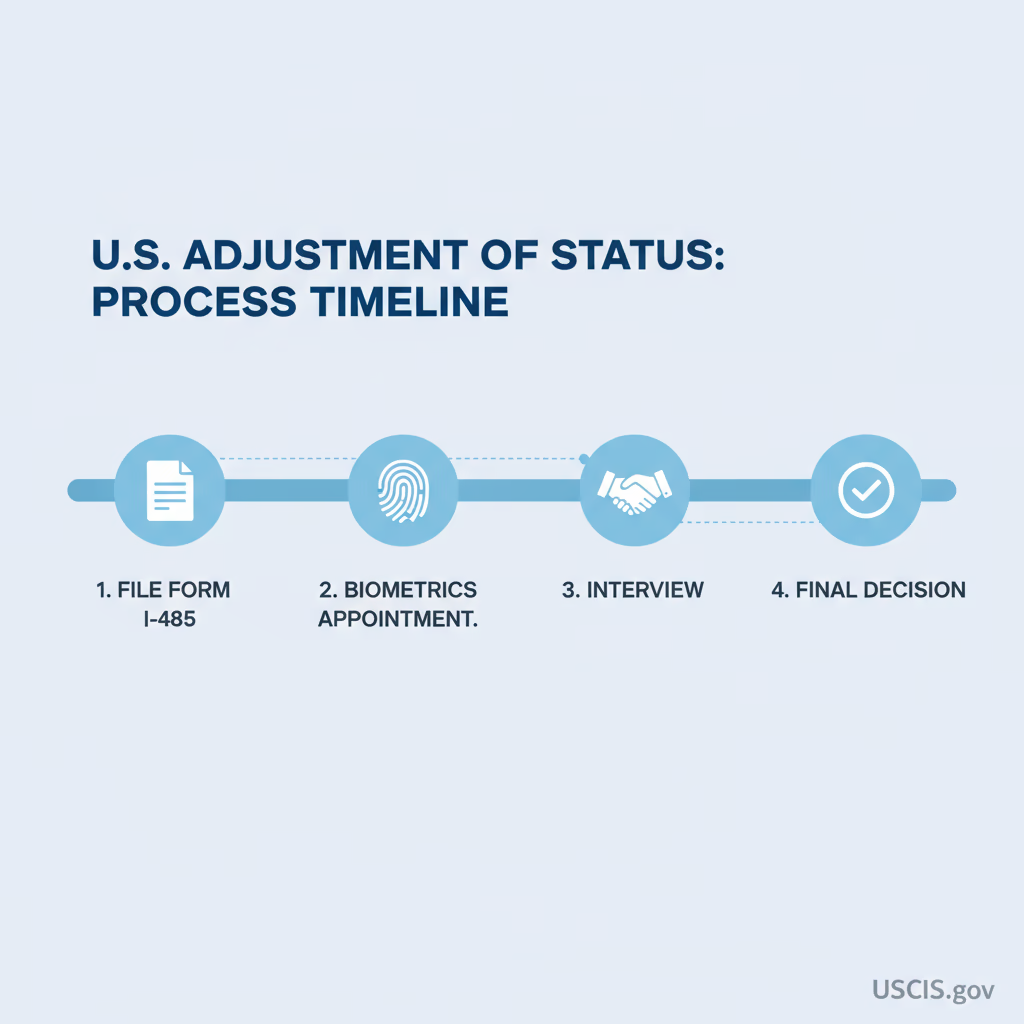For those who have found safety in the United States as a refugee or asylee, the journey has already been one of immense courage and resilience. The Dallas-Fort Worth area is proud to be a welcoming home for individuals and families fleeing persecution. After establishing a new life here, the next critical step is to secure your future by transitioning from temporary protected status to that of a lawful permanent resident, or green card holder.
This process is known as Adjustment of Status (AOS). While it is a mandatory step for refugees and an optional but highly recommended one for asylees, navigating it successfully is key to building a permanent foundation in North Texas. This guide will explain the process, requirements, and local resources available to help you on your path.
What is Refugee and Asylee Adjustment of Status?
Adjustment of Status is the process of applying for a green card from within the United States. For refugees and asylees, this path is unique and distinct from family or employment-based immigration. It acknowledges that you have already proven you meet the definition of a refugee under U.S. law. Therefore, you do not need a new petition from a family member or employer.
- For Refugees: You are required to apply for Adjustment of Status one year after being admitted to the United States.
- For Asylees: You are eligible to apply for Adjustment of Status one year after being granted asylum. While not mandatory, obtaining a green card offers greater stability, the ability to travel internationally with fewer restrictions, and a clear path to U.S. citizenship.
Gaining permanent residency secures your right to live and work in the U.S. indefinitely, even if conditions in your home country change.
Who Qualifies for This Type of AOS?
The primary eligibility requirements are straightforward but strict. To adjust your status as a refugee or asylee, you must:
- Have Been Granted Asylum or Admitted as a Refugee: You must have official documentation of your status.
- Be Physically Present in the U.S.: The AOS process is for those residing within the country.
- Meet the One-Year Requirement: You must have been physically present in the U.S. for at least one year since you were granted asylum or admitted as a refugee.
- Have Filed Form I-485: This is the core application for Adjustment of Status.
- Be Admissible to the United States: While many grounds of inadmissibility are waived for refugees and asylees, certain issues like serious criminal convictions or security threats can still bar you from getting a green card.
Unlike other AOS categories, there are no application fees for Form I-485 for refugees. Asylees, however, are generally required to pay the filing fee and biometrics fee unless they obtain a fee waiver.
The Adjustment of Status Process in DFW
While the laws are federal, your case will be processed through local USCIS centers. Here’s what to expect when applying from the Dallas-Fort Worth area.
Step 1: Complete and File Form I-485
Form I-485, the Application to Register Permanent Residence or Adjust Status, is the central document. You must fill it out completely and accurately. You will need to attach supporting evidence, including:
- Proof of your refugee or asylee status (I-94 card, asylum grant letter, or court order).
- Two passport-style photos.
- A copy of your government-issued photo ID.
- A copy of your birth certificate (with a certified English translation if necessary).
- Form I-693, Report of Medical Examination and Vaccination Record, completed by a USCIS-approved civil surgeon in the DFW area.
Step 2: Biometrics Appointment
After filing, you will receive a notice to attend a biometrics appointment at a local Application Support Center (ASC). In DFW, these are located in Dallas and Fort Worth. At this appointment, USCIS will collect your fingerprints, photograph, and signature for background and security checks.
Step 3: The Interview (If Required)
Many refugee and asylee AOS cases are approved without an interview. However, USCIS may schedule an interview at the Irving or Dallas Field Office if there are questions about your application, your identity, or your admissibility. An officer will ask you questions under oath to resolve any issues.
Step 4: Decision
Once USCIS has completed its review, you will receive a decision by mail. If your application is approved, you will be sent your green card. This card is proof of your status as a lawful permanent resident and is typically valid for 10 years.
Special Considerations for DFW Applicants
Finding a Civil Surgeon: You must use a doctor designated by USCIS to complete your medical exam (Form I-693). USCIS provides an online tool to find a qualified civil surgeon near your home in Dallas, Fort Worth, Plano, or any other North Texas city.
Keeping Your Address Current: The DFW metroplex is large, and people move frequently. It is absolutely critical to update your address with USCIS every time you move. If you miss a notice for biometrics or an interview because it was sent to an old address, your application could be denied.
Navigating Public Transportation: USCIS offices and support centers may be far from your home. Plan your travel well in advance, whether you are driving or using DART (Dallas Area Rapid Transit) or Trinity Metro. Arriving late for an appointment can have serious consequences.
Legal Guidance: While the process is more streamlined for refugees and asylees, complications can arise, especially concerning past arrests, travel outside the U.S., or dependents. If you have any concerns about your eligibility, it is wise to consult with an Adjustment of Status Attorney to ensure your application is handled correctly.
Free and Low-Cost Local Resources in DFW
Dallas-Fort Worth has a strong network of non-profit organizations dedicated to helping refugees and asylees integrate and thrive. These agencies can provide crucial assistance with your AOS application and other needs.
- International Rescue Committee (IRC) in Dallas: A leading refugee resettlement agency, the IRC offers comprehensive services, including immigration legal assistance, to help refugees and other immigrants on the path to permanent residency and citizenship.
- Catholic Charities Dallas: Their Immigration Legal Services team provides affordable and often free legal help for refugees and asylees applying for green cards, work permits, and family reunification.
- Refugee Services of Texas (RST): With an office in Dallas, RST provides resettlement services and ongoing support for refugees, asylees, and trafficking survivors, which includes help with employment and legal documentation.
- Human Rights Initiative of North Texas: This organization provides free legal and social services to refugees and immigrants who have suffered human rights abuses, including assistance for asylees seeking to adjust their status.
Your Next Chapter in Texas
Adjusting your status to that of a lawful permanent resident is the final legal step in making the United States your permanent home. It is a milestone that offers security, peace of mind, and the opportunity to one day become a U.S. citizen. By understanding the process and utilizing the excellent resources available in the DFW community, you can confidently navigate this transition and continue building your new life in Texas.






